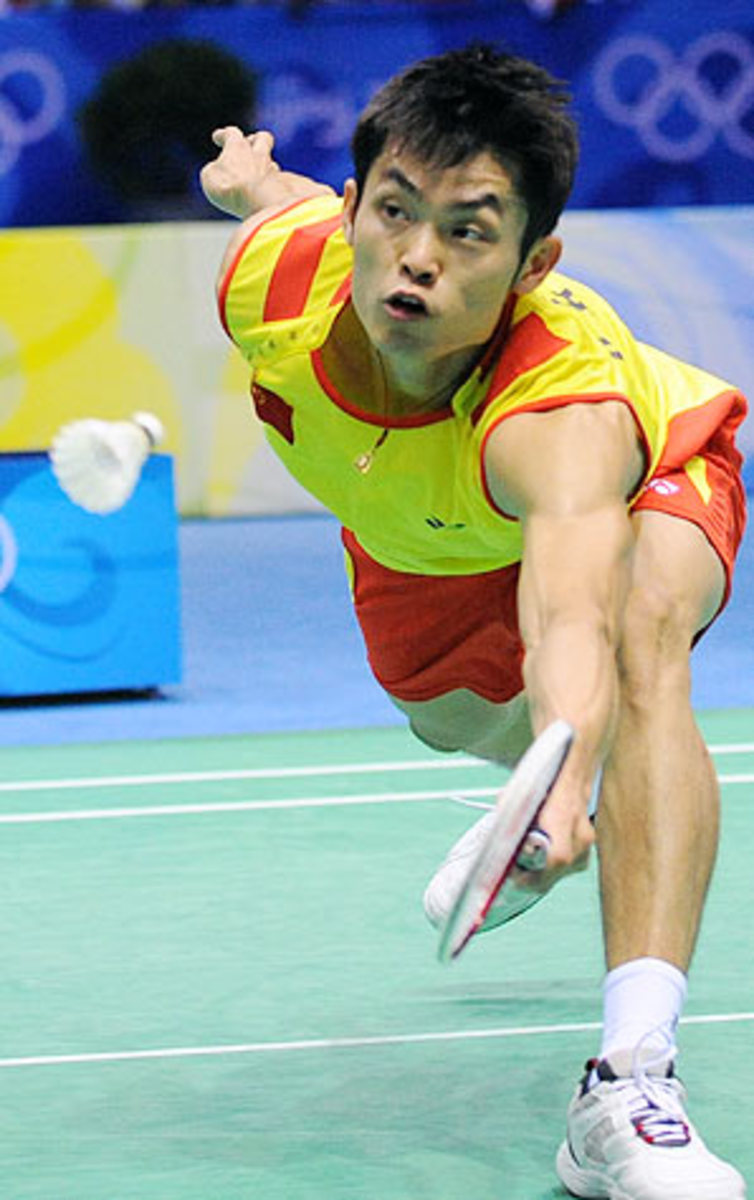Olympic badminton preview
Badminton belongs to Asia. Its countries won all 15 available medals in Beijing; China led the way with eight, including three golds. Asia has claimed 90.8 percent of all badminton medals (69 of 76) since the sport debuted at the Barcelona Games in 1992, and that trend is likely to continue in London. A Chinese sweep of golds at Wembley Arena is well within the realm of possibility, as the country boasts the No. 1-ranked players in four of five events -- men's singles, women's singles and doubles, and mixed doubles.
SPORTS EXPLAINERS: BADMINTON
(China's best men's doubles team is ranked No. 2.)
Lin Dan, China: "Super Dan," the gold medalist in men's singles in Beijing and the 2011 world champ, is the closest thing badminton has to a celebrity. (In China, where badminton is the fourth-most popular sport, he's a full-fledged celebrity, but the rest of the world has been slower to catch on.) Lin is a left-hander with a fiery on-court presence, a bad-boy rep (he allegedly punched his coach at a 2008 event) and status as the sport's greatest player. He's also a clear favorite to win a repeat gold in London.
Lee Chong Wei, Malaysia: The silver-medalist behind Lin in Beijing -- and world No. 1 in singles until Lin overtook him last month -- was considered to be his country's best shot at winning its first-ever gold. But a torn ankle tendon suffered at the Thomas Cup in May has put Chong Wei's fitness level for London into question, and he has also been coping with a family crisis after his father attempted to commit suicide in June. Chong Wei has been receiving stem cell treatments for his ankle, but it's still unclear whether he'll be able to compete in top form in what's likely to be his final Olympic opportunity before retirement.
Wang Yihan, China: The reigning women's singles world champ is poised to take over where her coach, retired two-time Olympic gold medalist Zhang Ning, left off in Beijing. Wang was never able to defeat Zhang in a major competition, but she took over the world No. 1 ranking at the age of 21 in 2009 and has not relinquished it. Wang has a penchant for letting matches reach the brink of defeat before pulling off dramatic rescues; she somehow survived four match points before winning her latest title, in May's Uber Cup.
The U.S. has yet to medal in badminton; in Beijing, the doubles team of Howard Bach and Bob Malaythong became the first Americans to even reach a quarterfinal. (The Bach-Malaythong combo remains more famous for appearing in a VitaminWater badminton ad that had them getting crushed by Chicago Bears linebacker Brian Urlacher and Boston Red Sox slugger David Ortiz.) While Bach is back, his new partner following Malaythong's retirement is the most intriguing U.S. shuttler: 37-year-old Tony Gunawan, who won a gold medal in doubles for Indonesia in 2000, moved to the U.S. in 2002, won a world doubles title with Bach in 2005, but didn't gain the citizenship required to represent the U.S. in the Olympics until 2011. The Bach-Gunawan duo is ranked 25th in the world but could have an outside shot at medaling.
Gunawan has also helped coach the lone American female representative, 20-year-old Rena Wang, who put an undergraduate degree at UCLA on hold to focus on qualifying for the Games. She has played in at least 25 tournaments since May 2011, reaching a world No. 63 ranking, which was good enough to make her the top American but makes a podium appearance highly unlikely.
Can Europe break the Asian stranglehold on medals? The two most realistic hopes for medalists from outside Asia are both from the Euro-badminton hotbed of Denmark: men's singles shuttler Peter Hoeg Gade (the world No. 5) and the men's doubles team of Mathias Boe and Carsten Mogensen (the world No. 3). Gade's chances improve significantly if Chong Wei isn't fit to contend.
India has few prominent female athletes, but 22-year-old Sania Nehwal is an emerging singles star whose popularity would explode if she reaches the podium. She made a run to the quarterfinals in Beijing when she was 18, and is ranked fifth in the world behind four Chinese women: Wang Yihan, Wang Xin, Li Xuerui and Wang Shixian.
In May 2011, the Badminton World Federation attempted to implement a rule that forced women playing in elite competition to wear skirts or dresses, in hopes of sexing up a sport with a limited fanbase. There was so much backlash to the rule, which was widely criticized as sexist and offensive, that it was scrapped before it took effect. Women competing in London can still wear skirts by choice, but many will opt for shorts or pants instead.
Aug. 3: Mixed Doubles
Aug. 4: Women's Singles, Women's Doubles
Aug. 5: Men's Singles, Men's Doubles






